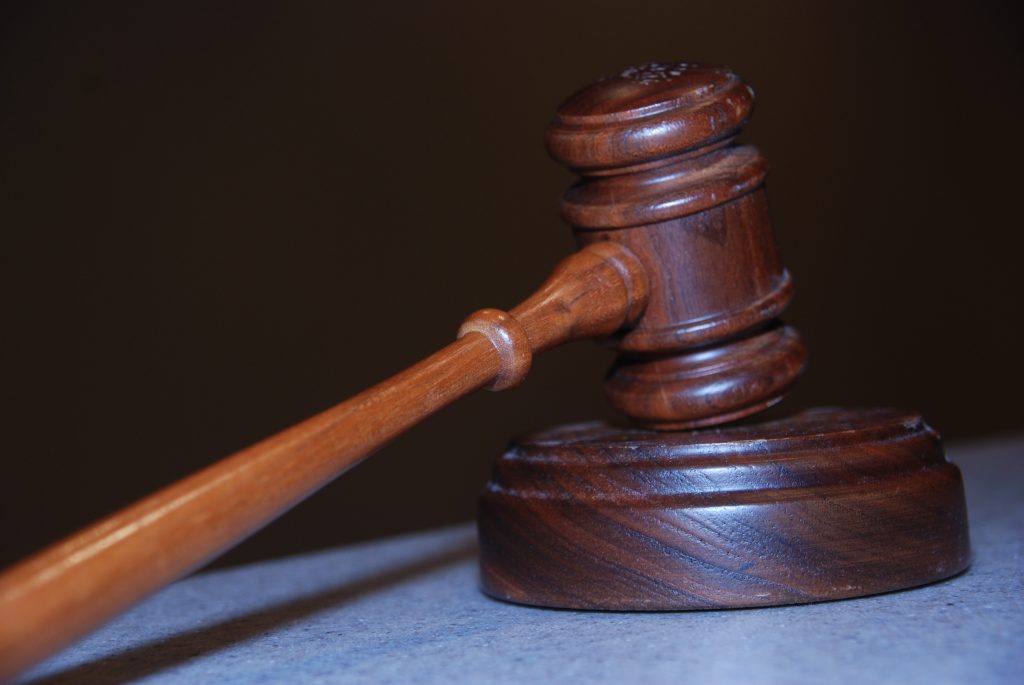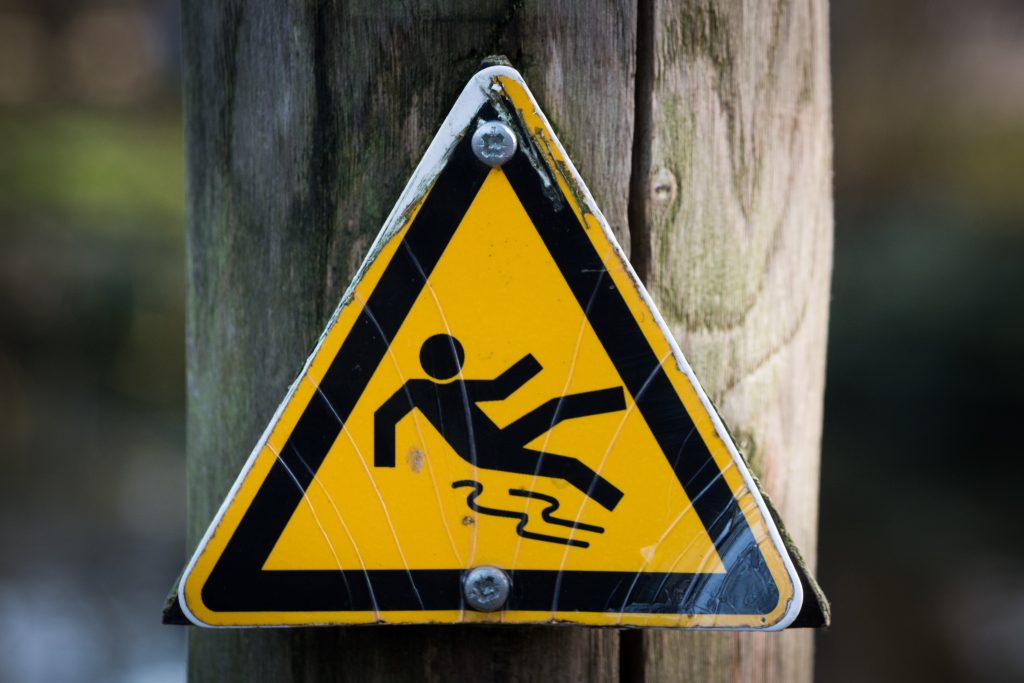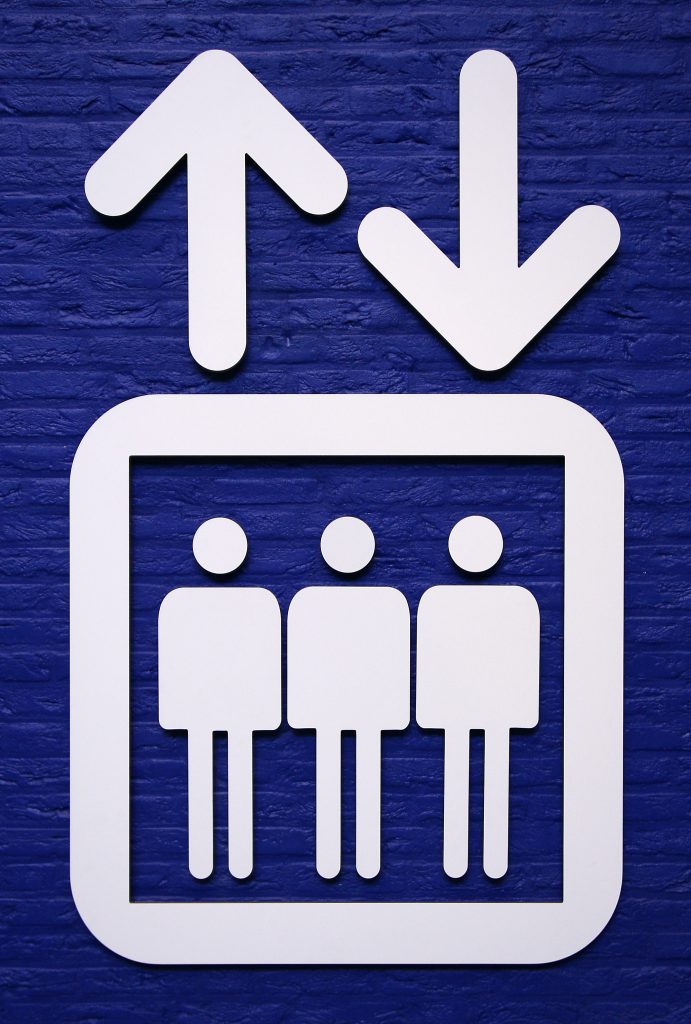 Witnesses can be critical to winning a personal injury lawsuit after an auto accident. Without an impartial third party to attest to what happened, the case can devolve into he said/she said situation. Even worse, when one party is mentally unable to recall the events of the incident, the outcome becomes even more uncertain. Some may be tempted to think their case becomes a slam dunk after that. With one party not even sure of the facts, the other side has to prevail, right?
Witnesses can be critical to winning a personal injury lawsuit after an auto accident. Without an impartial third party to attest to what happened, the case can devolve into he said/she said situation. Even worse, when one party is mentally unable to recall the events of the incident, the outcome becomes even more uncertain. Some may be tempted to think their case becomes a slam dunk after that. With one party not even sure of the facts, the other side has to prevail, right?
Plaintiff Lauren Condon (“Condon”) claimed she was rear-ended by Defendant Carol Logan (“Logan”) on the Pontchartrain Expressway in New Orleans on March 25, 2011. Logan denied fault, but Condon claimed a traffic ticket issued to Defendant for following too closely proves Logan was at fault. Condon filed a lawsuit against Logan and her insurer. After several unsuccessful attempts to depose Logan, Logan’s lawyer eventually divulged that Logan has been diagnosed with Alzheimer’s disease and would not be able to testify, either in deposition or in court. Condon then moved for partial summary judgment on the issue of liability. Summary judgment is a procedure where the court makes a ruling without a full trial, based on the information provided in the pleadings and the discovery process. If there is no “genuine issue of material fact,” then the court makes a ruling as a matter of law. La. C.C.P. art. 966. In the case of partial summary judgment, the court rules on one facet of the case, rather than the entire claim.
Logan’s defense team tried to combat the summary judgment motion with affidavits from Logan’s husband and a statement from Logan in the police report. Condon argued these are not admissible and moved to strike the documents. Logan’s attorneys argued that, since Logan has been stricken by mental impairment since the accident, her statement to the police should be admitted under La. C.E. art. 804.
 Louisiana Personal Injury Lawyer Blog
Louisiana Personal Injury Lawyer Blog


 Listening is the most important skill for an attorney. This is of paramount importance when following court orders. A lawyer must be careful in how his actions appear and the actions he takes when attempting to enter in a case, but what happens when a lawyer violates court orders?
Listening is the most important skill for an attorney. This is of paramount importance when following court orders. A lawyer must be careful in how his actions appear and the actions he takes when attempting to enter in a case, but what happens when a lawyer violates court orders? If injured on someone else’s property, it is important to know what has to be proven in order for a legal case to go forward. If the injury occurs from a defective structure, then the owner of the premise must have constructive knowledge of the defectiveness. The factors a court evaluates when the defective structure is on public property differ from those of a private owner. So, what happens if you are injured on someone else’s property?
If injured on someone else’s property, it is important to know what has to be proven in order for a legal case to go forward. If the injury occurs from a defective structure, then the owner of the premise must have constructive knowledge of the defectiveness. The factors a court evaluates when the defective structure is on public property differ from those of a private owner. So, what happens if you are injured on someone else’s property? Walmart is buzzing with pedestrian traffic on a daily basis. Where crowds of people are gathered, accidents are sure to follow. Sometimes Walmart’s products are knocked off of shelves, children spill juice in the aisles, and liquid products can slip from a person’s grasp and splatter across the floor leaving a hazardous environment for anyone to slip and fall. Despite Walmart’s best efforts to keep the stores clean, accidents still happen. As a result, legal services may be needed. If that is the case, information about the parties involved is exchanged between the opposing counsels for a period of time known as discovery. Information may be gathered through depositions or a series of questions under sworn testimony out of court. Once sufficient time has been provided for discovery, a party may determine that there is no factual basis for the case to move forward. Because of this lack of material fact, the party may then make a motion for summary judgment. This motion, if granted, can result in a dismissal of the entire lawsuit. Our justice system, however, provides an appeal process for situations where these judgments were granted in error! So, what do you do when you have been blindsided by summary judgement?
Walmart is buzzing with pedestrian traffic on a daily basis. Where crowds of people are gathered, accidents are sure to follow. Sometimes Walmart’s products are knocked off of shelves, children spill juice in the aisles, and liquid products can slip from a person’s grasp and splatter across the floor leaving a hazardous environment for anyone to slip and fall. Despite Walmart’s best efforts to keep the stores clean, accidents still happen. As a result, legal services may be needed. If that is the case, information about the parties involved is exchanged between the opposing counsels for a period of time known as discovery. Information may be gathered through depositions or a series of questions under sworn testimony out of court. Once sufficient time has been provided for discovery, a party may determine that there is no factual basis for the case to move forward. Because of this lack of material fact, the party may then make a motion for summary judgment. This motion, if granted, can result in a dismissal of the entire lawsuit. Our justice system, however, provides an appeal process for situations where these judgments were granted in error! So, what do you do when you have been blindsided by summary judgement? Have you ever been tempted to take a sick day, just because you need a break? Have you ever called in or left early because you are feeling under the weather and you would not be able to forgive yourself if you exposed the entire office to the bug you caught? Although many employees may stretch the truth on sick days sometimes, there are occasions where it becomes irresponsible and unprofessional. One Louisiana man attempted to test the boundaries of worker compensation when he requested medical payments for his sickness. So, how can you determine if someone is faking symptoms in a workers compensation case?
Have you ever been tempted to take a sick day, just because you need a break? Have you ever called in or left early because you are feeling under the weather and you would not be able to forgive yourself if you exposed the entire office to the bug you caught? Although many employees may stretch the truth on sick days sometimes, there are occasions where it becomes irresponsible and unprofessional. One Louisiana man attempted to test the boundaries of worker compensation when he requested medical payments for his sickness. So, how can you determine if someone is faking symptoms in a workers compensation case?  When one is injured by an employee’s negligence, it is reasonable to expect an award of damages from the employer. When an injured party files a lawsuit, however, the plaintiff must prove that the one who caused his injuries was indeed an employee of the business. For most cases, this is very easy to prove. When there is a question of identity, though, the evidence available can make or break the lawsuit.
When one is injured by an employee’s negligence, it is reasonable to expect an award of damages from the employer. When an injured party files a lawsuit, however, the plaintiff must prove that the one who caused his injuries was indeed an employee of the business. For most cases, this is very easy to prove. When there is a question of identity, though, the evidence available can make or break the lawsuit. Essential to winning any legal case is having a good lawyer. However, it is even more essential to have a good lawyer when dealing with tricky cases of negligence against the local government. An oversight caused Kenneth Rivarde’s lawyer to submit an incomplete affidavit from a key witness resulting in a lost lawsuit against the city of New Orleans. Mr. Rivarde’s wife, Channelda Rivarde, perished in a motor vehicle accident at the intersection of North Rocheblave Street and A.P. Tureaud Boulevard in New Orleans, Louisiana. Her husband, Kenneth Rivarde (“Mr. Rivarde”) sued the City of New Orleans (“City”) claiming that the accident was a result of a high-speed chase when the New Orleans Police Department (“NOPD”) was pursuing a fleeing felon. The accident occurred when the felon ran a stop sign and struck the car Channelda Rivarde was a passenger in. So, what happens if your lawyer submits an incomplete affidavit in a fatal car accident case?
Essential to winning any legal case is having a good lawyer. However, it is even more essential to have a good lawyer when dealing with tricky cases of negligence against the local government. An oversight caused Kenneth Rivarde’s lawyer to submit an incomplete affidavit from a key witness resulting in a lost lawsuit against the city of New Orleans. Mr. Rivarde’s wife, Channelda Rivarde, perished in a motor vehicle accident at the intersection of North Rocheblave Street and A.P. Tureaud Boulevard in New Orleans, Louisiana. Her husband, Kenneth Rivarde (“Mr. Rivarde”) sued the City of New Orleans (“City”) claiming that the accident was a result of a high-speed chase when the New Orleans Police Department (“NOPD”) was pursuing a fleeing felon. The accident occurred when the felon ran a stop sign and struck the car Channelda Rivarde was a passenger in. So, what happens if your lawyer submits an incomplete affidavit in a fatal car accident case? In order for a court to assess a fair amount of money to be paid for one’s injuries, it is necessary for the injured party to present sufficient evidence to justify that amount. Without sufficient evidence, it is entirely possible for a court to award an incorrect amount of money to the injured party. A trial court is generally allowed a certain amount of discretion (or freedom) to make a proper judgment. It must, however, come to a reasonable conclusion. An appellate court may alter the award if the judgment is incorrect based on the evidence provided. In 2016, the First Circuit Court of Appeal decided to do just that in a case that involves lost wages over an inability to audition for new jobs.
In order for a court to assess a fair amount of money to be paid for one’s injuries, it is necessary for the injured party to present sufficient evidence to justify that amount. Without sufficient evidence, it is entirely possible for a court to award an incorrect amount of money to the injured party. A trial court is generally allowed a certain amount of discretion (or freedom) to make a proper judgment. It must, however, come to a reasonable conclusion. An appellate court may alter the award if the judgment is incorrect based on the evidence provided. In 2016, the First Circuit Court of Appeal decided to do just that in a case that involves lost wages over an inability to audition for new jobs.  Medical malpractice lawsuits are filed for a wide range of injuries and even death. When a patient finds himself in a scenario where he believes a medical professional could have done more to prevent his injuries or cure his condition, he may decide to go through with a lawsuit. Medical malpractice lawsuits often require expert witnesses to succeed and proving damages in these cases where the patient enters a medical facility sick or injured can be a tough case to win. So, can you lose your medical malpractice case if you do not have enough evidence?
Medical malpractice lawsuits are filed for a wide range of injuries and even death. When a patient finds himself in a scenario where he believes a medical professional could have done more to prevent his injuries or cure his condition, he may decide to go through with a lawsuit. Medical malpractice lawsuits often require expert witnesses to succeed and proving damages in these cases where the patient enters a medical facility sick or injured can be a tough case to win. So, can you lose your medical malpractice case if you do not have enough evidence? Imagine coming home one day to discover your beloved pet is missing. Typically in this scenario, we would expect the judicial system to act in our favor if we know who the culprit is. This can be difficult across state lines, and even when the court is on your side, collecting on the ruling may not be so easy. It’s even more difficult if the court fails in legally required procedures of the case. In this case we are left with the question: what do you do when someone refuses to return your dog to you?
Imagine coming home one day to discover your beloved pet is missing. Typically in this scenario, we would expect the judicial system to act in our favor if we know who the culprit is. This can be difficult across state lines, and even when the court is on your side, collecting on the ruling may not be so easy. It’s even more difficult if the court fails in legally required procedures of the case. In this case we are left with the question: what do you do when someone refuses to return your dog to you?